Libyan-sponsored terrorism: IRA victims 'let down' by UK governments
- Published
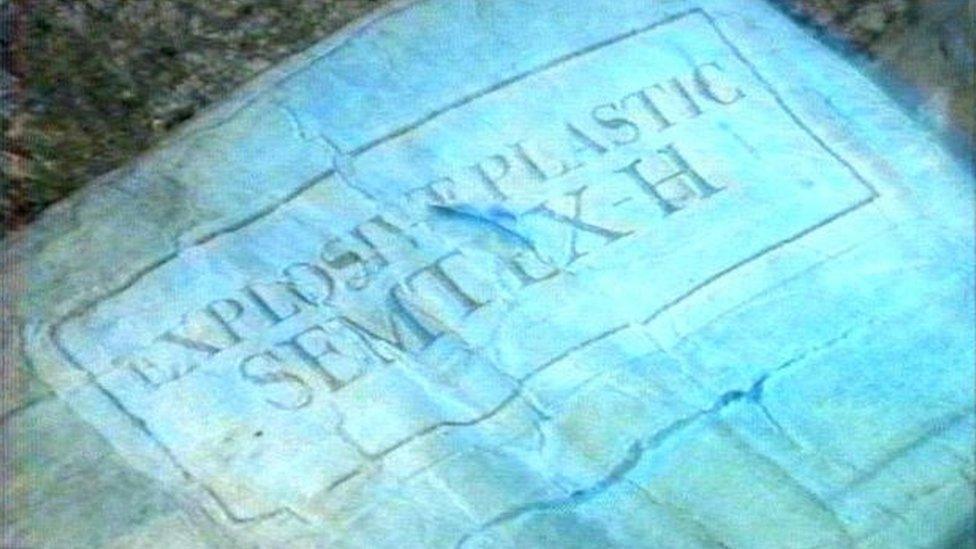
Libya supplied the plastic explosive Semtex to the IRA
Victims of Libyan-sponsored terrorism have been let down by successive UK governments in their campaign for compensation, a report has found.
The late Libyan leader Muammar Gaddafi supplied arms and Semtex to the IRA during the Troubles.
Libya compensated US victims of terrorism, but UK victims were left out of the deal.
The Northern Ireland Affairs Committee report highlights "missed opportunities" to secure compensation.
It urged the next British government to take "firm action" to end two decades of failure.
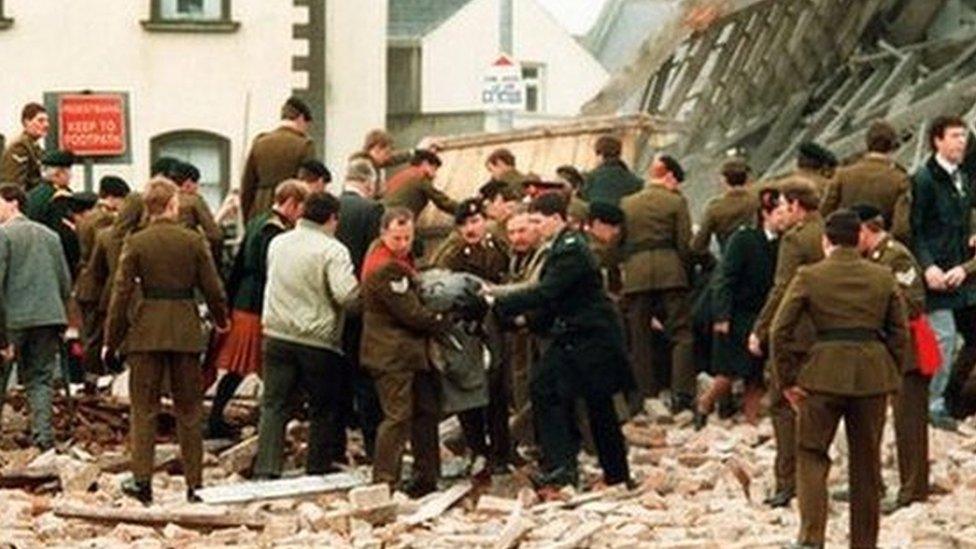
Eleven people were killed and more than 60 injured when an IRA bomb exploded near the cenotaph in Enniskillen in 1987
The report said there was "no doubt" that weapons, funding, training and explosives provided by the Gaddafi regime to the Provisional IRA "both extended and exacerbated the Troubles".
"In particular, the Semtex that was supplied made possible a deadly bombing campaign from the late 1980s, that included atrocities at Enniskillen, Warrington and the London Docklands amongst many others," the report said.
The committee said the human cost had been "immeasurable".
The inquiry received "heartrending" evidence from people who had suffered life-changing injuries and from parents, siblings and children of those who had lost their lives.
It questioned why no compensation had been secured for IRA victims when the French, German and US governments had all taken "strong action" to secure compensation for their citizens who had been harmed in terrorist actions sponsored by the Gaddafi regime.
The committee said that time was "running out" for many of the victims.
"The next government must not add to this series of missed opportunities," it added.
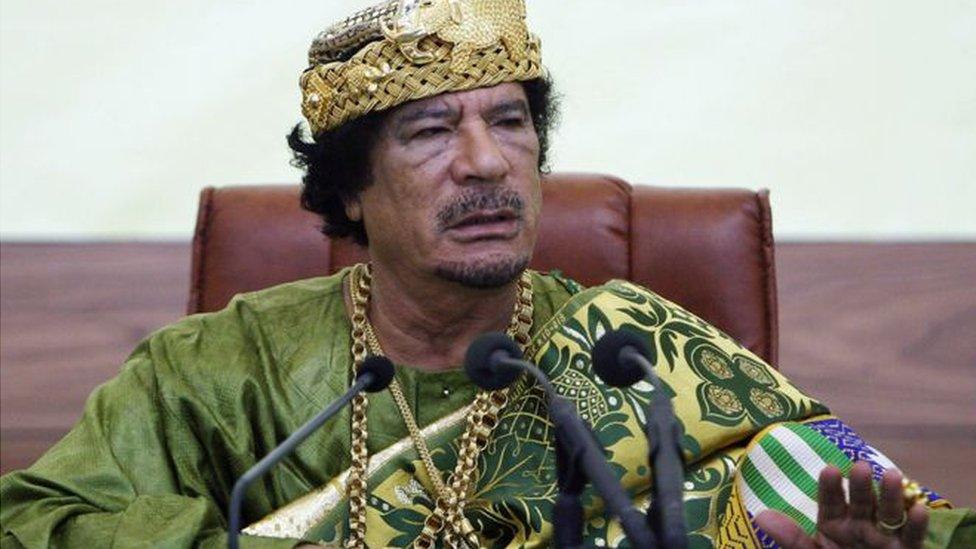
Muammar Gaddafi was toppled in 2011
"It should now enter into direct negotiations with the Libyan authorities to seek a compensation deal. It would be preferable for the Libyan authorities to voluntarily agree a compensation package than for the UK to act unilaterally."
Laurence Robertson, the committee's chair, said: "First and foremost, we must pay tribute to those who have suffered for so long and campaigned so bravely as a result of these horrific acts.
"As one of our witnesses, told us: 'We are the forgotten ones… the ones who for reasons utterly beyond my comprehension, successive governments have chosen to overlook.'
"The UK government cannot allow this litany of missed chances to continue. There needs to be direct dialogue with the Libyan government, and if the situation there makes this impossible, the government must begin the process of establishing a fund themselves.

Last year, former prime minister Tony Blair denied trying to prevent IRA victims from getting any financial compensation from Libya
"We very much hope that when the Northern Ireland Affairs Committee reconvenes after the general election they will continue to campaign on this issue. Until the victims have received the compensation they deserve they must be given our support."
Stephen Gault, whose father was killed in the Enniskillen Remembrance Day bomb, said the government needs to "sort this out once and for all".
"My mother has passed away," he said. "The victims are aging and who's to say that in another few years others will have passed.
"It's something that needs to be sorted now and not 10 or 15 years into the future."
Last year, former prime minister Tony Blair denied trying to prevent IRA victims from getting any financial compensation from Libya.
Mr Blair's comments came in written evidence to the Northern Ireland Affairs Committee.
Links between the IRA and Libya can be traced back to 1972 when Gaddafi first praised the group as allies in a struggle against Western imperialism.
Gaddafi later helped provide the IRA with the weaponry they needed to wage an armed campaign that lasted more than 30 years and claimed more than 1,000 lives.
Victims of IRA bomb attacks say they are entitled to money from the frozen bank accounts of Gaddafi.
Towards the end of Gaddafi's rule, relatives of the victims in the 1988 Pan AM flight bombing over Lockerbie received compensation, external from Libya, which accepted responsibility for the attack.
- Published13 September 2016
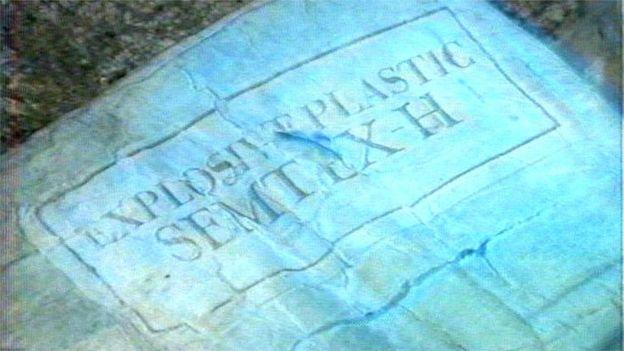
- Published13 June 2016
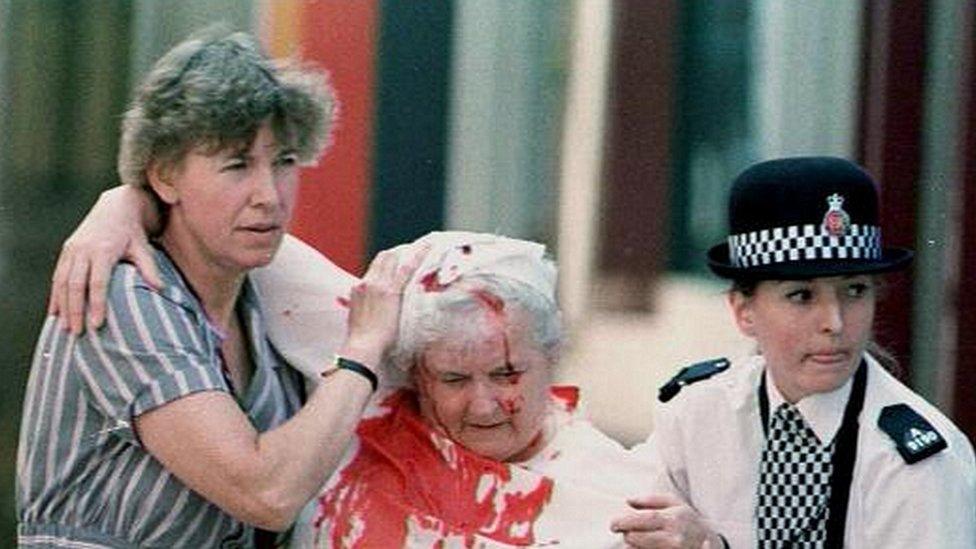
- Published6 January 2016

- Published9 September 2015
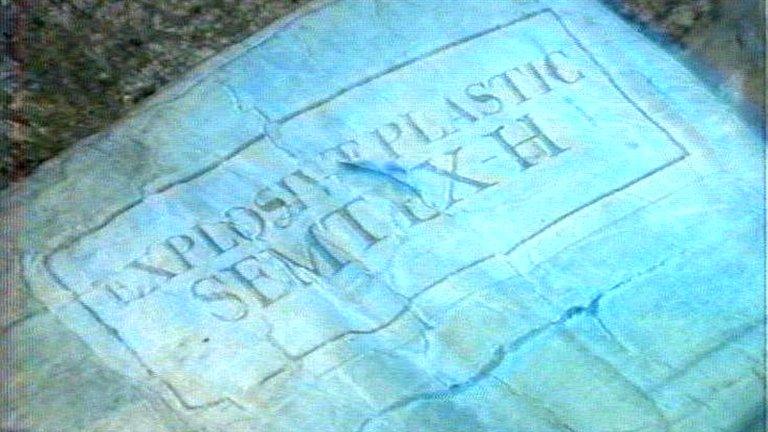
- Published20 October 2011